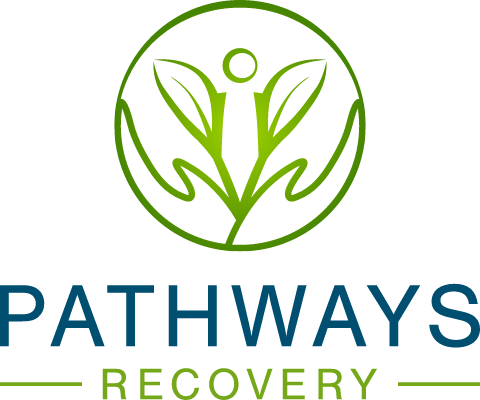How Do I Know If I Have A Drug And Alcohol Use Disorder That Requires Detox Treatment?
Medication Assisted Addiction Detox Center
Repeated substance use can cause the human body to develop a dependency on the drug of use. Once dependency is established, the drug’s craving can become a powerful negative force in an individual’s life and cause serious physical and mental health consequences.
Just as with any substance, drug use disorder can have varying degrees of severity. Depending on the individual, cases may range from being mild to severe. Generally, the level of severity is determined by the severity of withdrawal symptoms and intensity and frequency of use. The longer an individual uses a drug, the harder it is to stop the habit.
Symptoms of substance use disorder can include:
- Feeling compelled to use the drug daily
- Cravings for the drug make it difficult to focus on other thoughts
- Developing a tolerance to the drug, so a higher quantity is needed to achieve a similar effect
- Ensuring there is a supply of the drug available
- Spending money to purchase the drug, even if the price is beyond what one can afford to pay
- Engaging in risky behavior to acquire the drug, including stealing
- Failure in keeping responsibilities at school, home, or work due to drug use
- Continuing drug use despite recognizing that it causes mental or bodily harm
- Experiencing withdrawal symptoms (nausea, anxiety) when attempting to stop or limit drug use
Loved ones who struggle with drug use may exhibit certain behaviors that are identifiable by family members. Sometimes, in the teenage demographic, especially, it can be particularly challenging to distinguish between moodiness and signs of drug use. It’s essential to be aware of these specific behaviors to help identify unhealthy behaviors.
A loved one may be struggling with drug use if you notice:
- Frequent absences at work or school accompanied by a drop in performance and grades
- Physical health issues such as weight loss or gain, red eyes, or a lack of energy
- A lack of attention to appearance in areas like hygiene, grooming, and clothing
- Changes in behavior, especially an increase in secrecy
- Requests for money, missing or stolen money, and missing or stolen household items
What Are The Side Effects Of Drug Detox Addiction Treatment Programs?
If an individual with drug use disorder abruptly quits the habit or reduces the amount of the substance they consume, withdrawal symptoms can set in. The intensity of the symptoms will depend on how long the individual has sustained a drug habit. The longer the drug habit has continued, the more severe the withdrawal symptoms will be.
When an individual struggles with drug use disorder, the brain becomes accustomed to the substance’s effects. Over time, the brain adapts and labels the feelings and state of mind that occur during drug use as “normal.”
When an individual suddenly stops or reduces a drug use habit, the brain reacts and tries to adjust itself to the drug’s absence. This reaction can cause a significant fluctuation in the brain’s chemicals, which can lead to mental and physical health issues. Individuals may experience anxiety, depression, trembling, and excessive sweating.
Withdrawal symptoms can take days to weeks, depending on the individual’s drug use and reactiveness of the body’s systems.

How Do I Know If I Need A Drug And Alcohol Detox Center?
Know the Signs
To determine if you or a loved one needs the support and assistance of a specialized drug detoxification center, reflect on the severity level of the drug use disorder. The more severe a drug use disorder is, the more individuals stand to benefit from medical treatment in a drug detox center.
If an individual with a severe habit goes through an improper detox process, the withdrawal may be more difficult and pose greater risks to the patient’s health. Improper detox withdrawal symptoms can include severe pain, psychosis, and suicidal thoughts or actions.
The more severe a drug use disorder is, the more difficult it becomes to quit the habit without outside help. When the brain becomes accustomed to a substance that has been continuously fed for long periods, the brain takes longer to find a return to normal in the body.
Drug Detox Withdrawal Levels
Severe addiction also increases the likelihood of a more intense and dangerous withdrawal. With the help of a drug detox center, medical professionals can better assist these patients with their withdrawal.
Individuals who deal with a mild or moderate drug use disorder may wonder how beneficial a drug detox center will be. An individual who experiences mild or moderate substance use disorder may not undergo the same intensity of withdrawal as individuals with a severe substance use disorder. They may also not be as affected by the negative physical and mental consequences of drug use.
However, the longer an individual continues with substance use, the body’s tolerance to the drug will eventually increase. As tolerance increases, an individual will need to continuously increase the substance’s dose to achieve a similar effect.
By continuously upping the dose, a high probability that the mild substance use disorder will continue to expand and grow to a severe level will continue. It is advisable to seek assistance before the substance use reaches a critical stage. Getting help earlier can also reduce the risk of developing more health problems down the road.
What Happens During The Detox Services?
During the detox process, a patient will stay in our safe and comfortable home-like environment. One of our top priorities is ensuring that every patient can feel secure and relaxed as they undergo treatment.
Our facility is medically supervised. We work with experienced medical professionals to ensure that your detox process is as seamless and comfortable as possible. Patients will have their vitals and well-being monitored by our medical team and can be prescribed medication to help control withdrawal symptoms if necessary.
We offer specific detox program tracks for particular drugs. Depending on what substance a patient has used, the length of the detox process will vary. For example, our detox process for methadone can last ten days to two weeks, and the process for heroin detox and opiate detox can last seven to 10 days.
Nutrition is another key part of our detox process. We aim to replenish essential nutrients that are often lacking due to substance use. We offer nutritious, healthy food like fruit and vegetable juices, superfood smoothies, and whole food plant-rich foods.
What Are The Next Steps And Care After The Detox Process?
Detoxification is only the first part of the journey to long-term recovery. We believe that additional outpatient and inpatient programming is critical to maintaining sobriety. Before departing from our facility, our team will work with every patient to ensure they have a solid aftercare plan for continuing treatment.
We offer an Intensive Outpatient Program or an Outpatient Program. We are willing to help guide you through your options and look forward to building the necessary skills to maintain a stable future.
Pathways Recovery is here to help you and your loved ones cast off a substance use disorder’s constricting hold. Our home-like detox facility is ready to provide you with a great opportunity to begin your recovery journey. Give us a call at 916-735-8377 to get enrolled today.

Detox Center FAQs
What medicine is good for detox?
There is no one specific medication that will be perfect for every patient. In some programs, methadone is used to control withdrawal symptoms. However, we do not use methadone because it is an opioid and can be as addictive as heroin.
We use another medication called Suboxone and other non-Suboxone options to ensure our patients are getting the appropriate treatment they need. We strive only to administer medication if necessary.
What happens during a detox?
Depending on the kind of detox, people will have different experiences. At Pathways Recovery, we offer medical detox. In medical detox, the patient will come to our facility and be monitored by our medical team for withdrawal symptoms. The medical team will assess each patient’s condition and prescribe medication if it is needed to help control withdrawal symptoms.
Medical detox is widely considered one of the safest ways to go through the detoxification process.
What are signs your body is detoxing?
As detox occurs, the body aims to regulate itself. During this process of regulation, a patient can experience withdrawal symptoms. There may be chemical imbalances in the brain during detox that cause withdrawal symptoms such as anxiety, discomfort, nausea, difficulties in concentration, and mood swings.
How do you feel when your body is detoxing?
During detox, substances make their way out of the body. At this time, patients may feel withdrawal symptoms. Those symptoms can include restlessness, anxiety, insomnia, muscle aches, feeling depressed, tremors, and increased blood pressure.
The type and intensity of withdrawal symptoms during detox will depend on the substance the patient used and its frequency.


